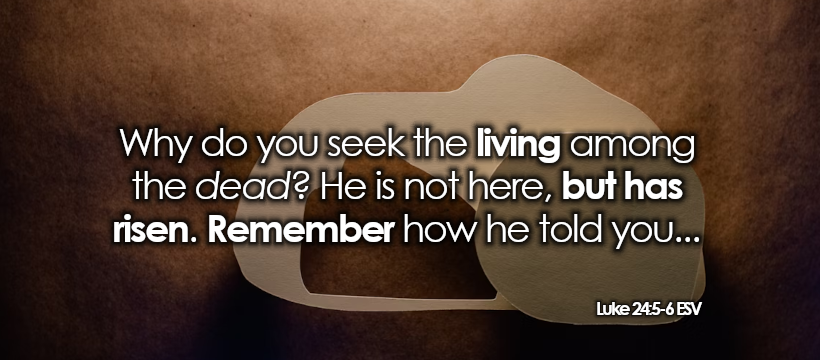
It has been said somewhere that religion is man’s attempt to come to God, while Christianity is God coming to man (Isaiah 7:14). Sadly, many are deceived into thinking that to please God they have to do some type of work to conjure up enough of their own righteousness. From the start, I want to share an essential Biblical truth: Salvation is a free gift of God, not of human works (see Ephesians 2:8-9). With that simple truth in mind, these things can’t and won’t save you:
- Keeping a set of human rules, traditions, or religious rituals (i.e., “The Sacraments”)
- Being a “good” or moral person
- Going to church or participating in church activities (i.e., Communion or baptism)
- Your good works outweighing your bad works
- Praying a ritualistic prayer (no matter how many times you pray it)
- Faithfully following what you believe, no matter how passionate you are (all paths and religions do not lead to God)
If I didn’t catch what or who you are trusting in the list above, I hope you’ll insert it here. If you are not trusting in Jesus Christ and Him and Him alone for salvation, you are going to discover a startling reality one day when you stand in His presence. Salvation comes by faith alone in Christ alone through His finished work on the cross alone, plus nothing. There is a question that drives so many: How can I have right relationship with God? You don’t have to wonder.
In John 6:29, Jesus shares the simple, profound, beautiful truth: Jesus answered them, “This is the work of God, that you believe in him whom he has sent.” (John 6:29 ESV, emphasis added) The word for believe is the the Greek word pisteuō and according to Strong’s it means to have faith (in, upon, or with respect to, a person or thing), that is, credit; by implication to entrust (especially one’s spiritual well being to Christ): – believe (-r), commit (to trust), put in trust with. To do the work of God centers first and essentially on entrusting your life to Jesus Christ.
While you are busy trusting in something or someone else or trying to get to heaven through some other means, you aren’t facing the simple truth: Without Jesus, we have no hope. Apart from Christ the Scripture reveals that we are all sinners, and none of us are righteous. (See Romans 3:23 and Romans 3:10) Because the wages, that is the payment or final result, of sin is death (see Romans 6:23), we have arrived at a critical conclusion: On our own, it is hopeless.
If you read Romans 6:23, you discover both the bad news and the Gospel (that is, the Good News) contained in this one beautiful verse: For the wages of sin is death, but the free gift of God is eternal life in Christ Jesus our Lord. (Romans 6:23 ESV) Because of that “but,” everything changes! The truth is, God hasn’t left it up to us and He certainly hasn’t abandoned us to death. Today, if we have entrusted ourselves to Jesus Christ, we have great reason to rejoice! We have received the incredible gift of eternal life in Christ Jesus our Lord!
However, if you have never entrusted yourself to Christ, you are still dead in your sins. The Scripture reminds us: And without faith it is impossible to please him, for whoever would draw near to God must believe that he exists and that he rewards those who seek him. (Hebrews 11:6 ESV, emphasis added) Today it is my prayer that if you are trusting in anything and anyone else other than Jesus Christ for salvation, that today your eyes and heart would be opened to the truth of the Gospel. If you would humbly turn to Christ today, everything would be totally transformed.
We invite you to visit us here to learn about the ABC’s of becoming a Christian.


